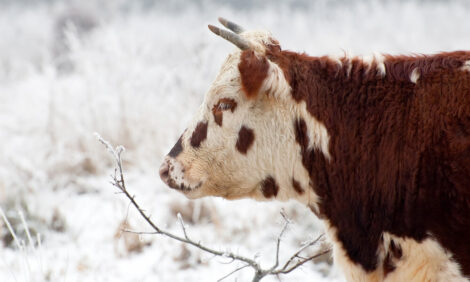



GE Cows on the Move
UK - An AgResearch plan to move genetically engineered (GE) cattle out of a secure North Island site to other locations around the country may go ahead without the public having their say.The Crown Research Institute (CRI) is applying to the Environmental Risk Management Authority (Erma) early next year to expand and develop its eight-year- old programme involving a herd of 96 GE cows at Ruakura, near Hamilton.
The existing programme involves research into extracting milk containing a human protein from the transgenic cows for use in pharmaceuticals.
The proposed new work with commercial partners would investigate using other specific proteins expressed in the milk of a range of GE ruminants, including cows, sheep and goats, for use in nutraceuticals (foods claimed to have a medicinal benefit) and pharmaceuticals.
Regulatory approvals would be sought for that technology.
But while AgResearch has told stakeholders its application to Erma will be open for public submissions mid-next year, one part of the programme may not be.
The Press has seen a copy of a draft AgResearch application to Erma to amend where its GE herds can be securely contained. The application is under section 67A of the Hazardous Substances and New Organisms Act 1996, which does not allow for public submissions.
The original condition was that at the end of the programme, the GE cattle, offspring and any biological material be destroyed.
But AgResearch general manager for company compliance Dr Jimmy Suttie said the CRI had not made a decision about formally lodging the application.
"We are keeping our options open should we decide to go down this track," he said.
"It is undecided at this stage if we want to do this and hence possible locations have not been discussed."
Erma spokesman David Venables confirmed a section 67A amendment would not be open for public submissions. "However, before approving the requested amendment, the authority must accept that the change is minor and technical," he said.
GE-Free New Zealand spokeswoman Claire Bleakley said AgResearch had put up section 67A amendments before, effectively "watering conditions down".
"We are really, really concerned about the section 67As. We know there are section 67As that are not `minor and technical'. This is definitely not minor."
AgResearch had not carried out studies of what spraying soured milk or effluent from the GE herd did to the land and soils, she said.
"We believe that until AgResearch has had a proper peer review on all the adverse effects that could happen, we cannot allow them to move the herd from this site. Otherwise we will be having more contaminated sites being spread around the country," she said.
Suttie said an agreed monitoring programme had been in place for several years, with results showing no difference from those of normal farming practices.
No horizontal gene transfer had occurred either.
Double fences contained the cattle and all future work would be done in containment, he said.
TheCattleSite News Desk


